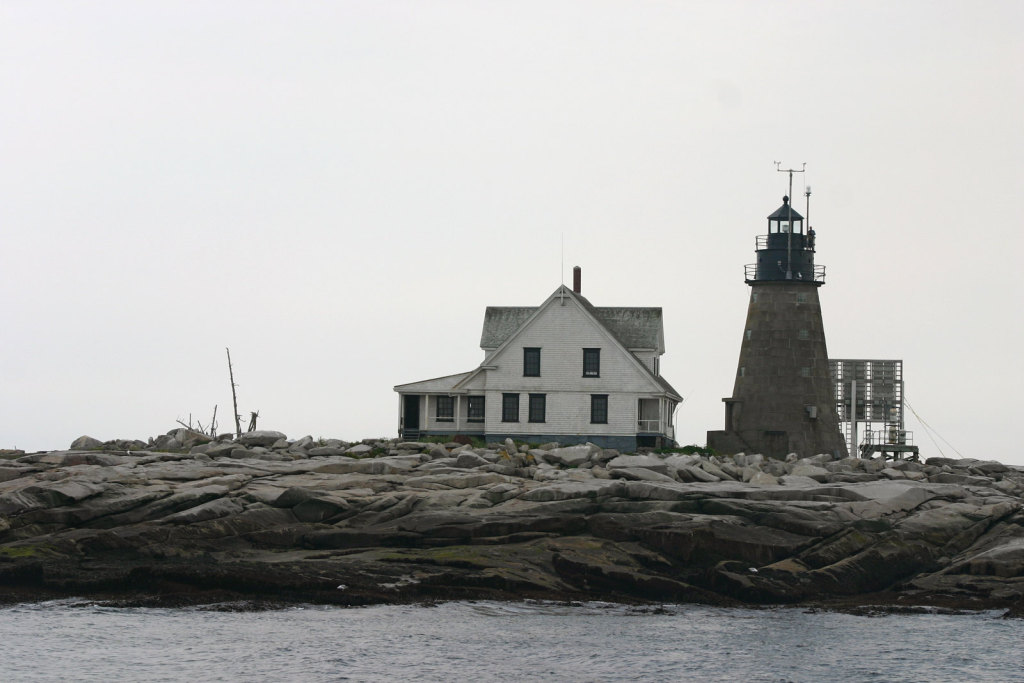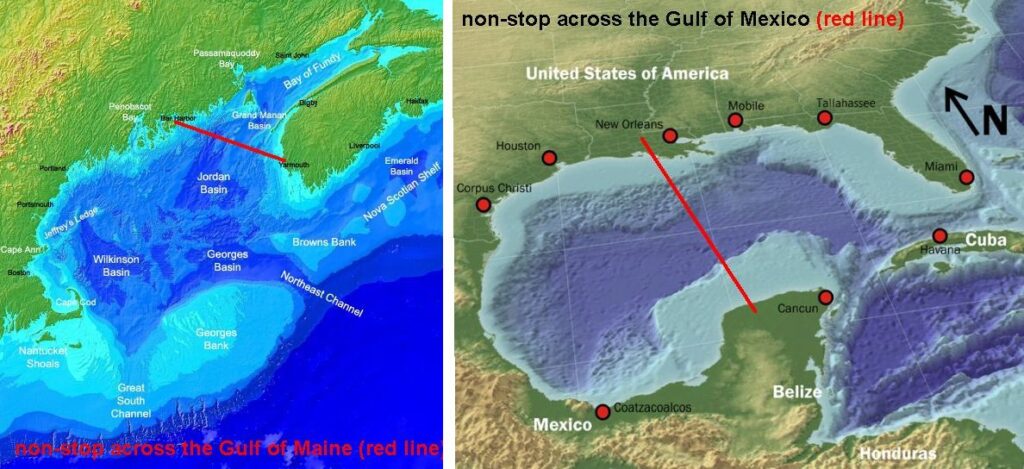
If this were a normal year(*), my husband and I would be at Acadia National Park right now and I’d go on a whale watch tour in the Gulf of Maine to see shearwaters, storm-petrels and (rarely) a south polar skua. Overhead, far from shore, I’d also see migrating songbirds crossing the water from Nova Scotia to Acadia, still traveling during the day in order to make landfall.
Their journey across the Gulf of Maine — about 100 miles — mimics their 600-mile journey over the Gulf of Mexico from Louisiana to the Yucatan which takes 15-25 hours of non-stop flying. Even during the shorter Gulf of Maine journey some have to make an emergency rest stop on Mount Desert Rock, an inhospitable way station for songbirds, shown above.

This week millions of songbirds are crossing both the Gulf of Maine and the Gulf of Mexico.
Read about what they find if they stop on Mount Desert Rock in this 2013 article No Food, No Water.
p.s. (*) Alas, it’s not a normal year. We wish we could go to Maine but COVID-19 precautions canceled any idea of flying and even if we drove to Maine we’d have to quarantine in the hotel for 14 days, using up our entire vacation and prohibiting any whale watch tour. Sigh.
It is so sad, all that cannot happen because of Covid 19. I am waiting to be able to fly to CT to meet and hold my 2 month old Great-Granddaughter. 🙁 I wanted to ask you if you have any info about all the fires in the West and birds migrating and dying. Someone posted an article on FB, but it is a non-secure site and I didn’t want to forward the article to you. Thanks Kate.
I don’t have any info on the fires’ effect on birds. I imagine they are generally in better shape than mammals because they can fly away … except birds’ respiratory systems are more sensitive to pollution than ours and I know people are suffering with the smoke. All around a bad situation.
Did you hear about the massive die off of migrating birds in New Mexico?